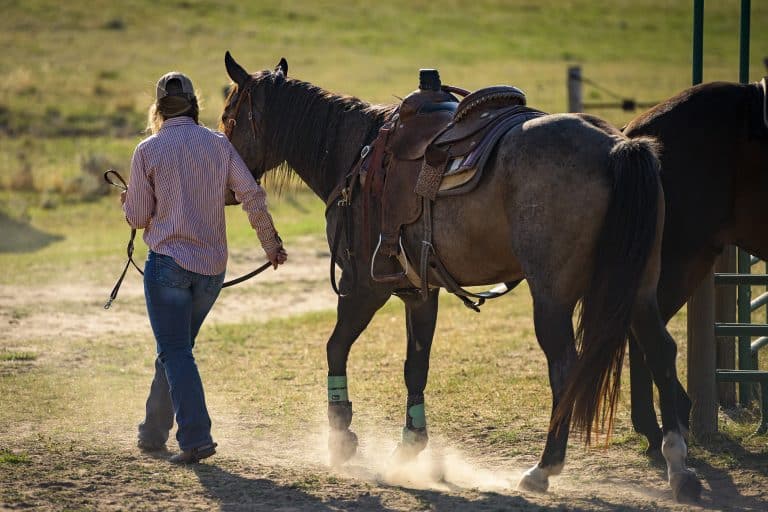The horse industry has been hit by an Equine Herpesvirus-1 (EHV-1) outbreak that has led to many horses in quarantine and some euthanized after confirmation of the illness.
The horses affected by the current outbreak attended the Women’s Professional Rodeo Association (WPRA) World Finals and Elite Barrel Race event in Waco, Texas, in early November.
On Nov. 19, Texas Department of Agriculture Commissioner Sid Miller issued an alert to horsemen of the outbreak of EHV-1 reported by Texas veterinarians after the WPRA event. Miller urged all horse owners, trainers and venue operators who were at the event to take caution and monitor their animals.
“This virus can spread fast, it can be deadly, and the earliest signs are often so subtle they’re easy to miss,” Miller said. “That’s why monitoring your horses right now is critical. The quicker we identify a potential case, the better chance we have to protect not only our animals, but the entire Texas equine community.”
The American Association of Equine Practitioners (AAEP) said in a news release following the outbreak that horses can shed the virus during the two- to 10-day incubation period before developing clinical signs.
LOOK FOR SIGNS OF ILLNESS
Clinical signs of EHV-1 can vary from horse to horse. Most common signs include fever of 101.5 Fahrenheit or above, nasal discharge, coughing, depression or lethargy, and neurological signs such as stumbling or incoordination, loss of tail tone, hind-limb weakness, head tilt, recumbency, and abortion in pregnant mares.
EHV-1 causes Equine Herpesvirus Myeloencephalopathy (EHM), according to the AAEP release. While EHV-1 is common in equine populations, the neurologic form of the disease is rare. Two cases of EHM have been confirmed in Oklahoma horses. Horses in Texas, Oklahoma, Colorado and Louisiana have tested positive for EHV-1. Two horses with the virus have been euthanized in Texas.
EHV-1 is spread from horse to horse through contact with nasal discharge or inhalation of aerosolized respiratory droplets. It can also be spread on contaminated surfaces such as stalls, water, feed, tack or trucks and trailers. Humans can spread the virus to a horse if in contact with contaminated horses, equipment or vehicles. Proper biosecurity is important, especially during an outbreak.
The Wyoming Livestock Board (WLSB) released guidance for horse owners to be mindful of after a Colorado horse confirmed with EHV-1 participated in Wyoming events in Cheyenne, Wheatland, and Casper, November 15-16. WLSB has not confirmed a case of EHV-1 in the state.
Below is the guidance is from WLSB on what horse owners need to do going forward:
- Equine movement and event attendance: Avoid attending events where horses are commingled.
- Practice strict biosecurity: Avoid sharing equipment, water, or tack, and maintain distance between horses. Wash your hands and disinfect surfaces and equipment diligently.
- Monitor your horse twice daily: Look for signs of fever and temp your horse if you recently traveled to an event or are going to travel to one (above 101.5F). Watch for nasal discharge or any neurologic symptoms (difficulty walking, lethargy, or inability to stand).
- Report immediately: If you notice any concerning signs, especially a fever or neurologic symptoms, contact your veterinarian immediately. Veterinarians must report acute neurologic disease directly to our office.
Following news of the outbreak, Billings Livestock Horse Sale made the difficult decision to cancel their sale that was scheduled for November 22nd.
“After much consideration, consultation with our veterinarians, our state veterinarian, we felt that it was in the best interest of Billings to not have our November sale event,” said horse sale manager Jann Parker.
Veterinarians around the country are working with clients to prevent further disease spread. Horses that were exposed to the virus are to be quarantined for 14 days to monitor symptoms. Miller also suggested the quarantine of horses that have mingled with others transported from the WPRA event, as well as other horses participating in large multi-barn gatherings.
NATIONAL FINALS RODEO UPDATE
The Wrangler National Finals Rodeo is planned for early December. As of Nov. 21, the event will continue according to the Pro Rodeo Cowboys Association news release. “The current guidelines are based on ongoing monitoring of the current equine health landscape and may be adjusted as needed,” PRCA said. “Las Vegas Events and PRCA will continue collaborating with state veterinary officials to ensure the safety and well-being of all participants, both human and equine, throughout the event.”
Key points include a seven-day Certificate of Veterinary Inspection with a unique permit number, monitoring of horses by participants and competitors, no-travel advisory for all horses participating and competing, enhanced verification and check-in procedures and biosecurity measures during the event.
“I’m asking every local horse rider, roper, trainer, and breeder to do their part today,” Miller said. “Check your horses twice a day, isolate any exposed animals, tighten up your biosecurity, and call your vet the moment something looks off. If we work together and take this seriously, we can get ahead of this outbreak.”
###
DTN/WLSB/BLS


